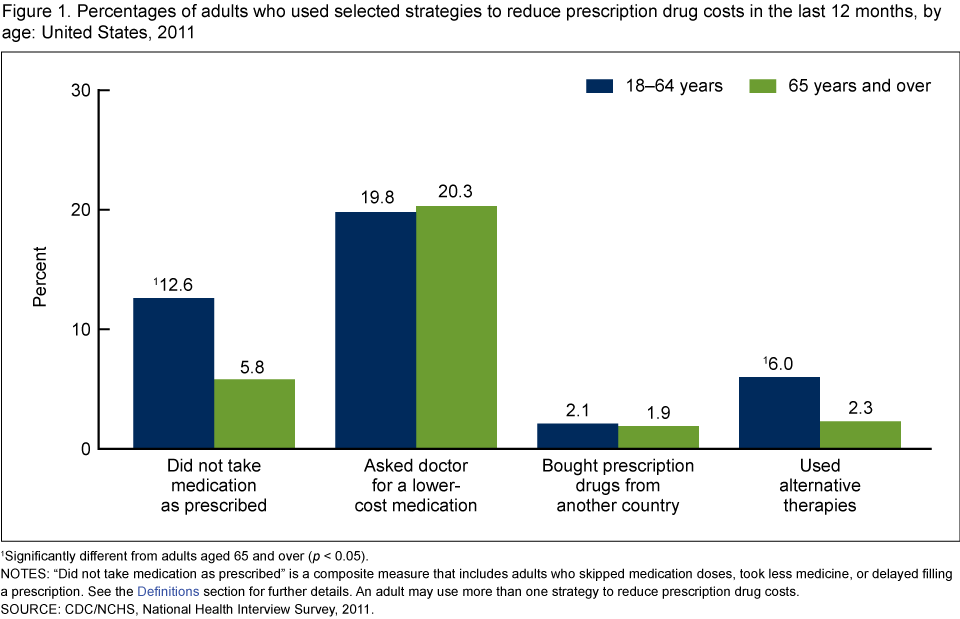Strategies Used by Adults to Reduce Their Prescription Drug Costs
Posted on byIn 2011, Americans spent $45 billion out-of-pocket on retail prescription drugs. Some adults reduce prescription drug costs by skipping doses and delaying filling prescriptions; however, some cost-reduction strategies used by adults have been associated with negative health outcomes. For example, adults who do not take prescription medication as prescribed have been shown to have poorer health status and increased emergency room use, hospitalizations, and cardiovascular events
 A new report from NCHS analyzes different strategies used by U.S. adults to reduce their prescription drug costs, by age, health insurance status, and poverty status, using data from the 2011 National Health Interview Survey.
A new report from NCHS analyzes different strategies used by U.S. adults to reduce their prescription drug costs, by age, health insurance status, and poverty status, using data from the 2011 National Health Interview Survey.
Key findings from the report:
- Adults aged 18–64 and those aged 65 and over were equally likely to have asked their doctor for a lower-cost medication to save money on prescription drugs (19.8% and 20.3%, respectively).
- Adults aged 18–64 were twice as likely to not have taken medication as prescribed to save money (12.6%) compared with adults aged 65 and over (5.8%).
- Among adults aged 18–64, uninsured adults (23.1%) were more likely than those with Medicaid (13.6%) or those with private coverage (8.7%) to not have taken medication as prescribed to save money.
- Among adults aged 65 and over, those with only Medicare coverage were more likely to ask their doctor for a lower-cost medication to save money (24.9%) compared with those who had private coverage (20.1%) and those with Medicare and Medicaid (14.7%) coverage.
Categories Drug Use (legal)
Page last reviewed: April 9, 2013
Page last updated: April 9, 2013
Content source:
CDC, National Center for Health Statistics

One comment on “Strategies Used by Adults to Reduce Their Prescription Drug Costs”
Comments listed below are posted by individuals not associated with CDC, unless otherwise stated. These comments do not represent the official views of CDC, and CDC does not guarantee that any information posted by individuals on this site is correct, and disclaims any liability for any loss or damage resulting from reliance on any such information. Read more about our comment policy ».
Comments are closed.
Post a Comment